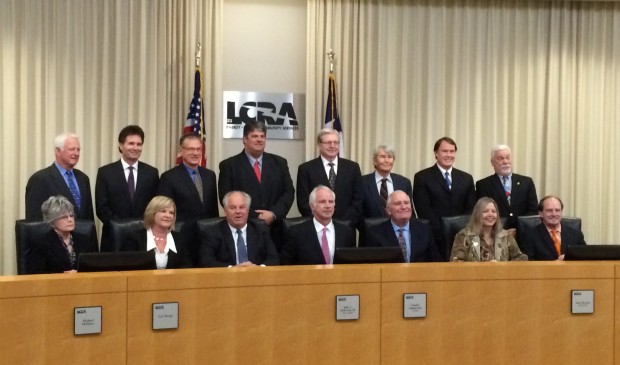Newsletter Signup
The Austin Monitor thanks its sponsors. Become one.
Most Popular Stories
- Austin’s growth is slowing, increasingly driven by international migration, as Hispanic and Black residents leave
- Firefighters to seek firing of Chief Baker
- Office slowdown sparks new downtown housing ambitions
- Elon Musk narrowly wins fight against neighbors over Austin-area home
- With cap of $687M, bond task force to weigh $4.4B in city needs
-
Discover News By District
Popular Whispers
Sorry. No data so far.

New agriculture commissioner calls water top issue
Monday, January 26, 2015 by Tyler Whitson
Recently elected Texas Department of Agriculture Commissioner Sid Miller said Wednesday that he plans for the agency to play a more active role as it relates to water.
“We’re going to have a water department, and we’re going to be very involved,” Miller said at a luncheon during a Lower Colorado River Authority Planning and Public Policy Committee meeting. “And we’re going to be involved in policy.”
Afterward, Miller told the Monitor that his “No. 1 issue” is water. “Texas is 27 million people now and we’ve run out of surface water to service the people of Texas, so it’s a real critical issue,” he said. “Rural Texas agriculture uses 70 percent of the water, so I think we need a seat at the table. Right now there’s not one, so we’re making it a top priority.”
As far as the LCRA goes, Miller said that he and newly appointed Assistant Commissioner of Agriculture for Water and Rural Affairs Dan Hunter are “going to work on those relationships and see if we can work together to make Texas better.”
Before accepting the newly created position, Hunter was executive director of the Texas Institute for Applied Environmental Research at Tarleton State University in Stephenville.
In November, the LCRA board of directors asked the Texas Commission on Environmental Quality for permission to limit downstream releases from the Highland Lakes for a record fourth year in a row, due to severe drought conditions. It also requested permission to reduce downstream release to protect the blue sucker, a threatened fish species.
This year’s request, like last year’s, has the effect of cutting off the water supply for most downstream agricultural interests in 2015, according to an LCRA news release.
LCRA representative Stefanie Scott told the Monitor on Friday that the TCEQ has not yet acted on the requests. “We don’t expect them to act before sometime next month,” she said.
According to LCRA’s most recent drought update, the combined storage of lakes Travis and Buchanan as of Jan. 1 was 689,396 acre-feet, or about 34 percent of capacity.
Speaking directly to the board committee, Miller addressed the severity of the situation. “We’ve got to do a better job of managing our water,” he said. “You all deal with it all the time over here. You all are caretakers of the state’s surface water, and going four years into the drought, it’s a problem.”
Miller suggested several ideas that he believes would improve water management practices, such as rainwater harvesting, off-channel storage, desalinization and biotechnology.
“Our cities spend millions of dollars on stormwater drainage, and you can make that an asset,” Miller said. “You can go to these buildings, capture that water, use it for irrigation or industrial use, put a charcoal filter on it, drink it, whatever, and then you don’t have to spend as much money on stormwater drainage.
“This is why I think the Texas Department of Agriculture needs to be involved in urban water,” Miller added. “There’s a lot of cities that have ordinances against rainwater catchment systems. They are in the business of selling water, not saving water. We’ve got to change their mindset and educate them.”
As far as desalinization and biotechnology, Miller mentioned a couple of examples. “We have a new potato out now that you can use half salt water, mixed with fresh water, and grow potatoes with that,” he said. Speaking more broadly about developing crops, he said, “We can actually change the genes of these plants now where they can adapt to brackish water, perhaps.”
Miller also said he plans to propose adding the phrase “consumer protection” to the name of his agency because it runs the state’s Organic Certification Program, inspects gas pumps and grocery scales, and performs other consumer services.
This role, Miller added, can apply to water as well. “We’re not just going to be all about agriculture,” he said. “Remember, we’re the consumer protectors, so we’re going to be the consumer educators for water.”
Photo of LCRA board of directors courtesy of Tyler Whitson
You're a community leader
And we’re honored you look to us for serious, in-depth news. You know a strong community needs local and dedicated watchdog reporting. We’re here for you and that won’t change. Now will you take the powerful next step and support our nonprofit news organization?


